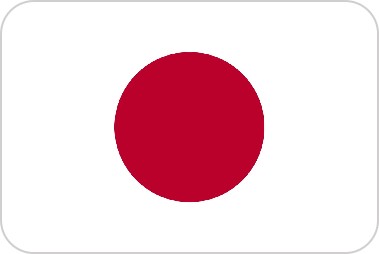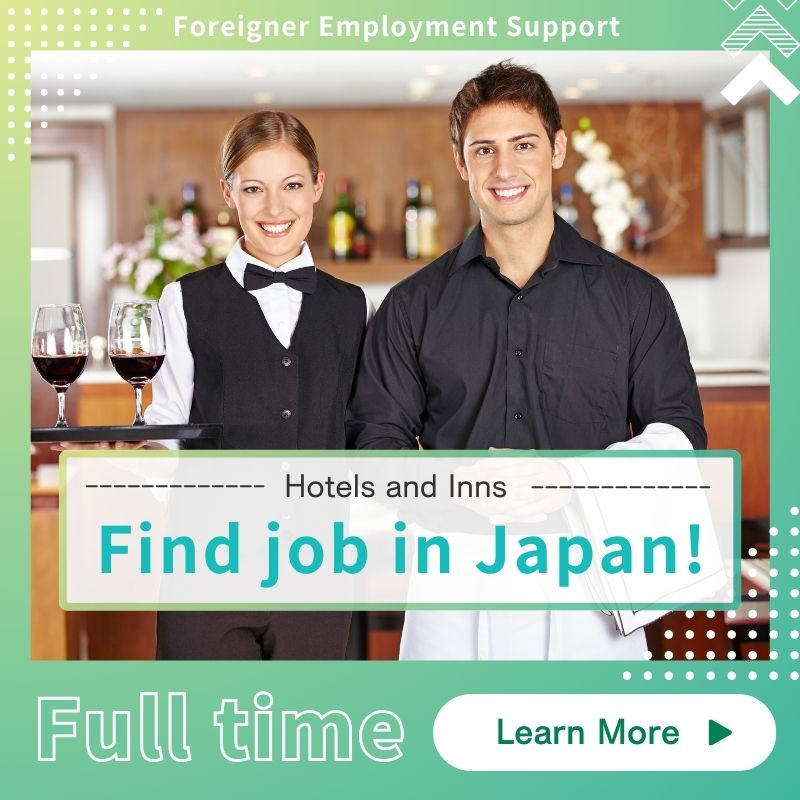Language
For foreigners who want to work in the Japanese hotel industry, the interview is a very important step. However, many people may feel that they don’t know what kind of questions they will be asked or are worried about Japanese interview etiquette. In an interview, not only the applicant’s skills and experience are emphasized, but also their motivation to work in Japan and their communication skills.
In this article, we will clearly explain the questions that foreigners are often asked in Japanese hotel job interviews and the points that interviewers pay attention to. Prepare well and go into the interview with confidence!
目次
- What interviewers pay attention to in a hotel job interview
- Frequently asked questions for foreigners in interviews ① About yourself
- Frequently asked questions for foreigners in interviews ② About career and skills
- “What did you study at university?”
- “Have you had any experience in customer service?”
- “What did you put your effort into in particular?”
- “Please tell us an episode where a customer was pleased.”
- “Have you ever dealt with a complaint? How did you handle it?”
- “What do you think is important when working in a team?”
- Frequently asked questions for foreigners in interviews ③ Reasons for applying and conditions
- Frequently asked questions for foreigners in interviews ④ About the future
- Other questions
- Impress the interviewer and get hired
What interviewers pay attention to in a hotel job interview

In a hotel interview, the interviewer will check not only what you say, but also your appearance, attitude, etc. It is important to understand what is being evaluated and to prepare thoroughly for each.
What the interviewer is looking at
- Be well-groomed
- Facial expression and posture when speaking
- Have the skills necessary for the job
- Willingness to work long term
- Understand the meaning of the question correctly
- Use polite language
Appearance is very important in an interview. A well-groomed appearance gives a good first impression and gives the impression that you are considerate to customers. In addition to your clothes and hairstyle, be careful not to cause discomfort with the length of your nails and perfume. If you look down or have a blank expression, you may be thought of as unsuitable for customer service work, so you need to be careful with your facial expressions and posture.
The interviewer also wants to know about you through your questions. From your answers to the questions, they are trying to see if you are willing to work long term and have the skills necessary for the job. They are also looking to see if you understand the meaning of the questions correctly and have no problems communicating in Japanese. Especially in hotel work, you often have to interact directly with customers, so it is important to be able to use honorific language. It’s okay if you make mistakes, so be conscious of using polite language.
At バリプラGlobal, we support foreigners who want to work in hotels and inns in Japan. If you have any concerns, we can help you with grooming checks and interview practice so that you can attend the interview with confidence. We also introduce jobs that are specialized in the accommodation and restaurant industries, so if you are interested, please check out the links below!
「宿泊業」「外食業」に特化した外国人の就職サポート バリプラGlobal
Frequently asked questions for foreigners in interviews ① About yourself

In an interview, you will be asked many questions to find out what kind of person you are. In a hotel job, you will often be in contact with customers and staff, so your personality and character are very important. Relax and explain yourself clearly.
“Please introduce yourself.”
In an interview, you will almost always be asked to introduce yourself first. Briefly talk about your name, country of origin, career history, current situation, etc. The key is to keep it short, within 30 seconds to 1 minute. You will make a good impression if you can convey your experience and strengths related to the hotel industry.
What you want to convey in your self-introduction
- Your name
- Age
- Country of origin
- Educational background, work history
- Current situation
- Your personality
- Strengths
- Reasons for applying
Finally, end by saying, “That’s all. Thank you for your time today.”
“Tell me about your strengths and weaknesses.”
This is a question to find out how well you analyze and understand yourself. For your strengths, talk about your strengths that are useful for working in a hotel, such as your hospitality spirit and communication skills. If you can be as honest as possible about your weaknesses and tell them how you are trying to improve them, you will make a positive impression.
Example Answer
“My strengths are that I have a strong sense of responsibility. In my previous jobs, I was careful to avoid making mistakes while working. My weakness is that I am too cautious, but recently I have been trying to be conscious of speed when I work.”
“Has anything surprised you or caused you any problems since coming to Japan?”
This question will show your adaptability to Japanese culture and life. If you have a problem, you can show your problem-solving ability by talking about how you solved it.
Example Answer
“What surprised me when I came to Japan was the culture of strict punctuality. It’s rare in my country for trains to arrive almost on time, so I found it very convenient.”
“What initially bothered me was the difficulty of Japanese honorific language. Honorific language for customers was particularly difficult, and there were times when I didn’t know which one to use. But now I’m getting used to it little by little, and I can use it appropriately.”
“What kind of person do people around you say you are?”
This question is aimed at getting to know your character and personality through the evaluations of your friends and colleagues. It would be a good idea to talk about strengths that you can apply to a hotel job, such as teamwork or customer service
Example Answer
“My friends tell me I’m kind and earnest. When I see someone in need, I try to help them as much as I can. At work, I also want to be of help to customers and staff.”
Frequently asked questions for foreigners in interviews ② About career and skills

In the hotel industry, your work experience and skills are important. Experience in customer service or working in a team is especially likely to be highly valued. Here are some typical questions about your work experience and skills.
“What did you study at university?”
People who are starting work for the first time may be asked what they studied at university. In addition to your major and research topic, you should also specifically explain why you became interested in that field. Also, if you can explain how you can use what you have learned in the hotel industry, you can show your enthusiasm for the job.
Example Answer
“I majored in Japanese language at a university in my home country and improved my ability to read, write and speak Japanese. I also studied Japanese history and culture, and discovered that there are many attractions to Japan that I don’t have in my home country. I will continue to study Japanese so that I can be successful in the Japan that I love.”
“Have you had any experience in customer service?”
Even if you don’t have experience in hotels, if you have experience working in a restaurant or in sales, it will be an appealing point. If you include specific anecdotes, your story will be more persuasive, so if you have experience, including part-time work, be sure to talk about it. Even if you don’t have experience, you can show your enthusiasm by explaining how you can use what you have learned so far.
Example Answer
“I worked part-time at a cafe in my country for a year. I did a variety of tasks, such as serving drinks and food to customers and handling the bill. I valued conversations with customers and tried to serve them with a smile.”
Example answer for those with no experience
“This is my first time working in customer service, but I like talking to people and have studied Japanese. I want to do my best in whatever way I can to make customers happy.”
“What did you put your effort into in particular?”
In this question, you will talk about the things you have worked hard on in your previous customer service jobs, part-time jobs, and studies. The interviewer wants to see your enthusiasm and sense of responsibility for your work, so it is a good idea to explain with specific anecdotes.
Example Answer
“In my previous job, I focused on improving the quality of customer service. In particular, I tried to respond to customers in a way that suited their needs. For example, when working at the hotel front desk, I would use simple English and gestures to explain things to customers who didn’t understand Japanese in an easy-to-understand way. I started to hear more customers say ‘thank you,’ and it felt really rewarding.”
Sample answer for a student
“I focused on studying Japanese at university. Outside of class, I tried to talk to Japanese friends, and I passed the N2 level of the Japanese Language Proficiency Test. I want to continue studying Japanese so that I can communicate well in any situation.”
“Please tell us an episode where a customer was pleased.”
In this question, you should talk about an experience where a customer expressed their gratitude to you. Working in a hotel requires you to provide services that satisfy customers, so be specific about what you did to make them happy.
Example Answer
“When I was working at a cafe in my home country, Japanese customers had trouble figuring out how to order. I explained things to them in simple Japanese and recommended some dishes, and the customers were happy, saying, ‘I’m glad there’s someone who speaks Japanese!’ At the hotel, I want to eliminate the language barrier and serve customers in a way that makes them feel at ease.”
“Have you ever dealt with a complaint? How did you handle it?”
In a hotel job, you may have to deal with complaints from customers. This question tests whether you can calmly deal with problems or difficulties. If you don’t have experience, answer by thinking about how you would deal with them.
Example Answer
“When I was working at a cafe, I received a complaint that the food I ordered had not arrived. I immediately checked with the kitchen and explained to the customer, “I’m sorry for the wait. It seems that it took a while because it was busy. It will be ready in about 5 minutes.” The customer understood and in the end, he said, “It was delicious.”
Example of an answer when you have no experience
“I have no experience dealing with complaints, but if a customer is dissatisfied, I will first listen to them. I would like to apologize when necessary and deal with the situation carefully while consulting with my senior colleagues and superiors.”
“What do you think is important when working in a team?”
Hotel work is all about teamwork, and this question is trying to gauge whether you’re suited to working in a team, so make sure you convey that you’re willing to cooperate.
Example Answer
“I think the most important thing when working in a team is communication. In order to make work go smoothly, it’s important to share information properly. I want to communicate with my colleagues so that we can help each other if someone is in trouble.”
Example answer for those with no experience
“I learned the importance of teamwork in group activities at university. There were times when we had different opinions, but we were able to achieve good results by discussing and working together. I want to work in a hotel while cooperating with my colleagues.”
Frequently asked questions for foreigners in interviews ③ Reasons for applying and conditions

During the interview, you will be asked in detail about your reasons for applying, such as “Why do you want to work in Japan?” and “Why did you choose to work in a hotel?” The hotel wants to know if you will be there for a long time and whether you really want to work in a hotel. If your reasons for applying are vague, they may distrust you and think that “any company will do” or that you have low motivation, so it is important to have a clear reason. It is a good idea to answer specifically, linking it to your experience and future goals.
“Please tell us why you came to Japan.”
In this question, you can talk about why you became interested in Japan and your experiences here. If you came here to study or work, explain your reasons in detail.
Example Answer
“I’ve always liked Japanese anime and movies, and I was interested in Japanese culture. That’s why I studied Japanese and majored in Japanese at university. I came to Japan to study abroad because I wanted to be able to speak Japanese better. I had a lot of fun living in Japan, and it made me want to know more about the country.”
“Why do you want to work in Japan?”
In this question, it is important to clearly communicate why you want to work in Japan. In addition to reasons such as “I like Japanese culture” or “I want to learn about customer service,” be sure to specifically explain why Japan is a good choice. Linking it to your future goals will make a better impression.
Example Answer
“I was attracted to the high quality of Japan’s service industry and wanted to work in Japan. Japan’s hospitality culture is highly regarded around the world, and I would like to acquire those skills as well. I would also like to improve my language skills and customer service skills by working in Japan, so that I can provide high-quality service to people from many countries.”
“Why do you want to work in the hotel industry?”
In this question, it would be a good idea to talk about your interest in the hotel industry and why you can utilize your strengths. If you can explain how your experience can be linked to work in the hotel industry, you will be more persuasive and demonstrate your enthusiasm.
Example Answer
“I like interacting with people and would like to work in a position that makes customers happy. In the hotel industry, I can learn high-quality hospitality while interacting with many different people. I would like to utilize my experience in the hospitality industry to learn higher level customer service skills and provide service that makes customers feel comfortable.”
“Why do you want to work at this hotel?”
The hotel wants to know “why you chose this hotel instead of other hotels.” Research the characteristics and services of the hotel you are interviewing at in advance and answer as specifically as possible. You will be highly evaluated if you can also explain how you can utilize your skills.「
Example Answer
“I was really impressed with your hotel’s emphasis on hospitality. I’ve worked in the hospitality industry for some time now, and have always been conscious of making customers happy. Working at a hotel like yours, which provides service that is attentive to the finer details of customers’ requests, is a perfect fit for me. I hope to be able to provide heartfelt service at your company as well.”
“What kind of work do you want to do?”
There are various jobs in a hotel, such as at the front desk, in the restaurant, in planning and PR, etc. Be specific about the type of work you would like to do. Even if you have no experience, it is important to show that you are willing to learn.
Example Answer
“I’m interested in front desk work. I want to be the face of the hotel, welcoming guests by handling check-in and check-out and guiding them around. I also want to use my Japanese and English to support overseas guests so they can use their stay with peace of mind.”
Example answer for those with no experience
“I’m interested in customer service work. In particular, I’d like to work at the front desk or in a restaurant, where I can communicate directly with customers. I don’t have any experience, but I’d like to learn the job quickly and do my best to provide service that makes customers happy.”
Frequently asked questions for foreigners in interviews ④ About the future

The interviewer wants to see what kind of goals the applicant has for the job and whether they will work for the company for a long time. Here, you should prepare to talk specifically about your skill development and future career so that you can demonstrate your strong motivation to work.
“Are there any skills you’d like to acquire?”
In this question, you can show your strong ambition by talking about “why you want to acquire that skill” and “how you want to use it in your work.” It is a good idea to talk about skills necessary for the customer service industry, such as Japanese language, communication skills, and management skills.
Example Answer
“I would like to further improve my communication skills in Japanese. In particular, I would like to be able to use honorific language and business conversation correctly so that I can treat customers with respect. Also, because Japanese hotels have many foreign guests, I would like to start studying English little by little.”
“What are your career plans for the next 3 to 5 years?”
Interviewers want to know that you have a clear goal in mind when it comes to your job, so tell them what career aspirations you have and what specific goals you have.
Example Answer
“In three years, I want to be able to confidently handle various situations on my own, as well as be able to guide and support my juniors. I want to strengthen cooperation between staff members so that we can provide better service as a team. To that end, I want to communicate effectively with those around me in my daily work and improve my leadership skills.”
“In five years, I want to be in a position like a team leader or manager. I want to be able to guide my juniors and manage a team, and be able to support not only customers but also the staff I work with. To achieve this, I want to acquire not only customer service skills, but also leadership and problem-solving skills.”
“How long do you plan to stay in Japan?”
By asking how long you will be in Japan, they will check whether you are willing to work long term. If you plan to return to your home country in a short time, be honest and show your enthusiasm for the job. However, if you are applying for a full-time position, you should understand that if you say “about a year”, you will be more likely to be rejected.
Example answers if you want to work long term
“I want to work in the Japanese hotel industry for a long time. I would like to thoroughly learn Japanese customer service skills and the culture of hospitality and gain experience. In the future, I would like to be able to bring a team together as a leader and provide service that will please even more customers.”
Example answer if the period is fixed
“I plan to work in Japan for three years. During that time, I would like to learn customer service skills and Japanese language thoroughly, and be of use to the Japanese hotel industry. Even if I return to my home country, I would like to continue working in customer service, making use of what I have learned in Japan.”
Other questions

In addition to basic questions, you may also be asked about your reasons for changing jobs and the status of your application during the interview. Prepare your answers in advance so that you can speak calmly.
“Please tell us the reason for changing jobs (leaving your job)”
In this question, you should explain why you left your previous job. Avoid talking about negative things such as dissatisfaction with the company. Instead, talk about positive reasons such as wanting to grow in your new workplace.
Example Answer
“At my previous job, I was doing _ work, but I wanted to be able to communicate directly with more customers, so I thought about changing jobs to the hotel industry. In a hotel, I’ll be able to interact with a variety of customers from Japan and abroad, so I think I’ll be able to make use of my language skills and customer service skills.”
“Have you applied to any other companies?”
By asking about the selection process, the hotel wants to make sure there is no possibility that you will go to another company if they offer you a job. There is no problem in answering honestly, but as a company, they want to offer a job to someone who is as motivated as possible, so it is important to convey that “this company is my first choice.”
Example answer for only one company
“No, I haven’t. I only applied to your company.”
Example answers if you are applying to multiple companies
「他のホテルの面接も受けていますが、貴社が第一希望です。貴社のおもてなしに対する考え方にとても魅力を感じており、ぜひ貴社ではたらきたいと考えています。」
“Do you have any questions?”
At the end of an interview, you may be asked “Do you have any questions?” This is called a “reverse question” and is set up as a place to resolve the applicant’s doubts and concerns. Not only that, but they are also trying to check your willingness to work and your level of interest in the company through this question, so if you don’t ask anything, they may think you’re not interested. If you ask questions that were explained during the interview or that you can find out by researching, it will not leave a good impression, so prepare the questions you want to ask in advance.
Example questions
“What kind of qualifications can I obtain to help me in my work?”
“What kind of career advancement opportunities do I have in the future?”
“Could you tell me about a typical day’s work routine?”
“What do you value most when working?”
Impress the interviewer and get hired

This time, we introduced questions that foreigners are often asked in interviews at Japanese hotels. Through these questions, the interviewer is trying to know about you, your past experiences, your thoughts on work, etc. Make sure you understand the intention of the question correctly and answer each one carefully. Even if you are not confident in your Japanese, you can make a good impression by smiling and speaking clearly.
Also, first impressions are important in interviews. Make sure your shirt is wrinkle-free, your hair is clean, and you are well-groomed before heading to the interview. Especially in hotel work, you often interact with customers, so you need to pay attention not only to your appearance, but also to your facial expressions and posture. Interviewers use these points to determine whether you are suited to customer service and whether you are motivated to work. Hotel work is a rewarding job that provides customers with a comfortable time. Make sure you prepare well so that you can appeal to your strengths and charms in the interview.
At バリプラGlobal, we support foreigners who want to work in Japanese hotels and inns. We provide various support to help you work in Japan with peace of mind, such as visa applications, immigration procedures, and daily life, and introduce jobs specializing in the “accommodation” and “restaurant” industries. If you are interested, please check out the link below!
「宿泊業」「外食業」に特化した外国人の就職サポート バリプラGlobal
- 26 articlesRecent posts
- ホテルコンシェルジュとはどんな職業?仕事内容や必要なスキルを紹介!【外国人向け】
- ホテルの事務職の仕事内容を紹介!どんなスキルが求められる?【外国人向け】
- Công việc marketing khách sạn bao gồm những gì? Giới thiệu mô tả công việc và mức lương hàng năm cho người nước ngoài!
- Khách sạn có những vị trí quản lý nào?Giới thiệu dễ hiểu về công việc và mức lương dành cho người nước ngoài muốn làm việc tại Nhật Bản
- ホテルのマーケティングは何をする?仕事内容や気になる年収を外国人向けに紹介!
- 7 articlesRecent posts
- Bạn nên trả lời thế nào khi được hỏi về điểm mạnh và điểm yếu trong buổi phỏng vấn? Giải thích dễ hiểu cho người nước ngoài! [Có đáp án mẫu]
- [Dành cho người nước ngoài] Bạn nên mang theo những gì khi đi phỏng vấn khách sạn? Một bản giới thiệu rõ ràng về những vật dụng hữu ích!
- 面接で長所と短所を聞かれたらどう答える?外国人向けに分かりやすく紹介!【回答例付き】
- 【外国人向け】ホテルの面接で必要な持ち物は?あると便利なアイテムも分かりやすく紹介!
- [Dành cho người nước ngoài] Chuẩn bị phỏng vấn xin việc làm trong ngành khách sạn! Những câu hỏi thường gặp và những điểm chính để được tuyển dụng
- 7 articlesRecent posts
- 【Ứng xử qua điện thoại bằng tiếng Nhật】Giới thiệu các phép lịch sự và cụm từ mà người nước ngoài nên biết!
- 【日本語の電話対応】外国人が知っておきたいマナーとフレーズを紹介!
- Giới thiệu những điều cơ bản về cách viết email công việc cho người nước ngoài! [Có câu ví dụ]
- ビジネスメールの基本の書き方を外国人向けに紹介!【例文付き】
- Nghi thức kinh doanh của người Nhật là gì? Những quy tắc và văn hóa cơ bản bạn nên biết trước khi làm việc
- 3 articlesRecent posts
- 7 articlesRecent posts
- Hướng dẫn đi tàu điện Nhật Bản dễ hiểu! Hãy tuân thủ đúng quy tắc khi sử dụng tàu điện [Dành cho người nước ngoài]
- Giới thiệu luật giao thông Nhật Bản! Những điều cần biết để sống an toàn [Dành cho người nước ngoài]
- 日本の電車の乗り方をわかりやすく紹介!マナーを守って利用しよう【外国人向け】
- 日本の交通ルールを紹介!安全に暮らすために知っておきたいこと【外国人向け】
- Nếu người nước ngoài bị mất hộ chiếu ở Nhật Bản thì sao? Một lời giải thích đơn giản về những việc cần làm
- 7 articlesRecent posts
- [Dành cho người nước ngoài] Giới thiệu dễ hiểu về các thuật ngữ kinh doanh thường dùng được viết bằng chữ katakana!
- 【外国人向け】よく使われるカタカナのビジネス用語をわかりやすく紹介!
- Một giới thiệu dễ hiểu về thuật ngữ dịch vụ khách hàng khách sạn dành cho người nước ngoài! Bao gồm các câu ví dụ sẵn sàng sử dụng
- ホテルの接客用語を外国人向けに分かりやすく紹介!すぐに使える例文付き
- Hãy cùng học cách chào hỏi của người Nhật! Từ lời chào cơ bản đến lời chào kinh doanh
- 7 articles
- 21 articles
- 9 articles













